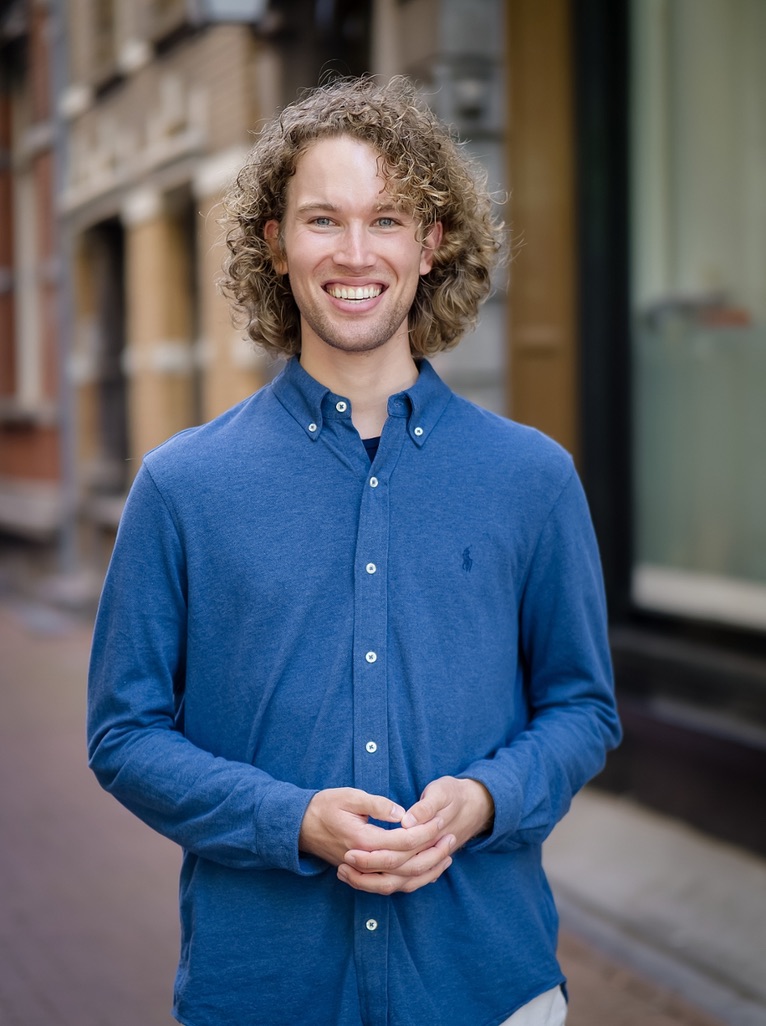Medical Researcher Savelkoel received a grant from the Amsterdam University Fund for his research project on the tropical infectious disease melioidosis in Nigeria. 'Without that grant, we would not have been able to conduct this research,' says Savelkoel. Through his project, healthcare professionals in Nigeria are learning to recognize and treat melioidosis. 'This way, we can contribute to reducing mortality and disease burden.'
“Melioidosis is caused by a bacterium known as Burkholderia pseudomallei. People become infected through contaminated soil or contaminated water," explains Savelkoel. "We believe that individuals primarily contract it through minor skin wounds or by inhaling or ingesting the bacterium. Infected individuals may develop abscesses or symptoms resembling sepsis, tuberculosis, or pneumonia. The problem lies in the fact that melioidosis is not well-known among the Nigerian population and healthcare professionals. As a result, patients likely do not receive the correct treatment, leading to unnecessary deaths or lingering health issues due to the disease. Effective treatment for melioidosis can only be administered through a specialized, prolonged course of antibiotics.
Melioidosis not recognized by the WHO
"Due to the limited recognition of melioidosis by local healthcare providers, mortality from melioidosis is underreported. In 2022, Savelkoel won the UvA Thesis Award with an article in which he substantiated why melioidosis should be recognized by the World Health Organization (WHO) as a neglected tropical disease. As a doctoral candidate at the Center for Experimental and Molecular Medicine at Amsterdam UMC, Savelkoel continues his quest for the recognition of melioidosis through his current research."
Initial Soil Investigation
During his medical studies, Savelkoel assisted Dr. Birnie [who currently co-supervises his doctoral research alongside Professor Wiersinga] in mapping the global disease burden of melioidosis. Nigeria ranks among the top five countries with the highest estimated 'melioidosis disease burden.
“To address the disease in Nigeria, we first conducted searches for the bacterium Burkholderia pseudomallei in soil samples," explains Savelkoel. One of the initial projects of his doctoral research involved analyzing soil samples collected by Birnie in Nigeria. "Our analysis revealed the presence of the bacterium in various regions of Nigeria. With our research project 'In search for melioidosis in Nigeria,' we aim to investigate how many people have come into contact with the bacterium and how many develop melioidosis. Additionally, we seek to raise awareness of the disease among the local population and healthcare professionals."
Blood and Microbiological Research
In the southeastern regions of Nigeria, where the bacterium was most commonly found in the soil, Savelkoel is collaborating with local healthcare professionals to conduct research in two ways. In the region with the highest soil prevalence of melioidosis, 500 blood samples have been collected for the project, which Jelmer will analyze in Nigeria this autumn. 'We are examining whether these samples contain antibodies, which will indicate if individuals have come into contact with the bacterium. Additionally, we are conducting microbiological research in two hospitals. In each hospital, we are conducting additional tests on all suspicious cultures over the course of a year. Furthermore, we are performing a PCR test, which provides a hundred percent certainty whether it is the bacterium and, therefore, melioidosis. We also aim to determine the specific bacterial strain involved since different bacterial strains can lead to different clinical presentations. For patients diagnosed with melioidosis, we are documenting their symptoms.”

Demonstrating Melioidosis Infections in Nigeria
By revealing the prevalence of melioidosis and its various forms in Nigeria, Savelkoel aims to contribute to the global mapping of melioidosis. He hopes that this will lead to the recognition of the disease by the WHO. 'If melioidosis is recognized, the WHO will formulate policies to combat the disease, and pharmaceutical companies may consider donating medications and developing vaccines. Vulnerable individuals, such as those with lung problems or diabetes, who are at higher risk, can then be vaccinated. It is crucial for a large organization like the WHO to initiate an awareness campaign in tropical regions. This can prevent many infections. For example, it helps if people wear shoes and gloves, cover open wounds, and consume clean water.”
African Melioidosis Workshop
Savelkoel is thrilled about the close collaboration with Nigerian physicians and healthcare professionals. “This allows us to teach them how to recognize melioidosis in cultures and treat it correctly. In doing so, we contribute sustainably to reducing mortality and disease burden due to melioidosis.” To transfer and solidify the knowledge gained during the research in Nigeria, Jelmer, in partnership with the WHO, local partners, and Dr. Birnie, intends to organize a second edition of the African Melioidosis Workshop in Lagos, Nigeria. “We will invite healthcare professionals from Nigeria and representatives of public health and government agencies from various African countries. We aim to train them in recognizing and treating melioidosis and establish a knowledge network. To systematically combat the disease, continuous laboratory research should be conducted.'”
Soil Research in Suriname
Savelkoel his driving force is to combat injustice. “I find it unjust that severe diseases like these affect people in the world who already have less. That is why I want to advocate for the recognition of melioidosis as a neglected tropical disease by the WHO.” Last summer, as part of his doctoral research, he was in Suriname to collect and analyze soil samples to demonstrate the presence of melioidosis in Suriname."
About the Spinoza Fund
With contributions from the Spinoza Fund, the Amsterdam University Fund promotes medical research, purchases medical equipment, and provides travel grants to medical students. Talented (young) researchers from the UvA (University of Amsterdam) can apply for project grants each year. This gives them the opportunity to initiate their research and advance their scientific careers.
Source: Read the original article (in Dutch) on the Universiteit van Amsterdam website here.
Images: Michael Niamut
Explore further information about the tropical infectious disease melioidosis:
Melioidosis deserves a spot on the WHO list of neglected tropical diseases (November 2022)
